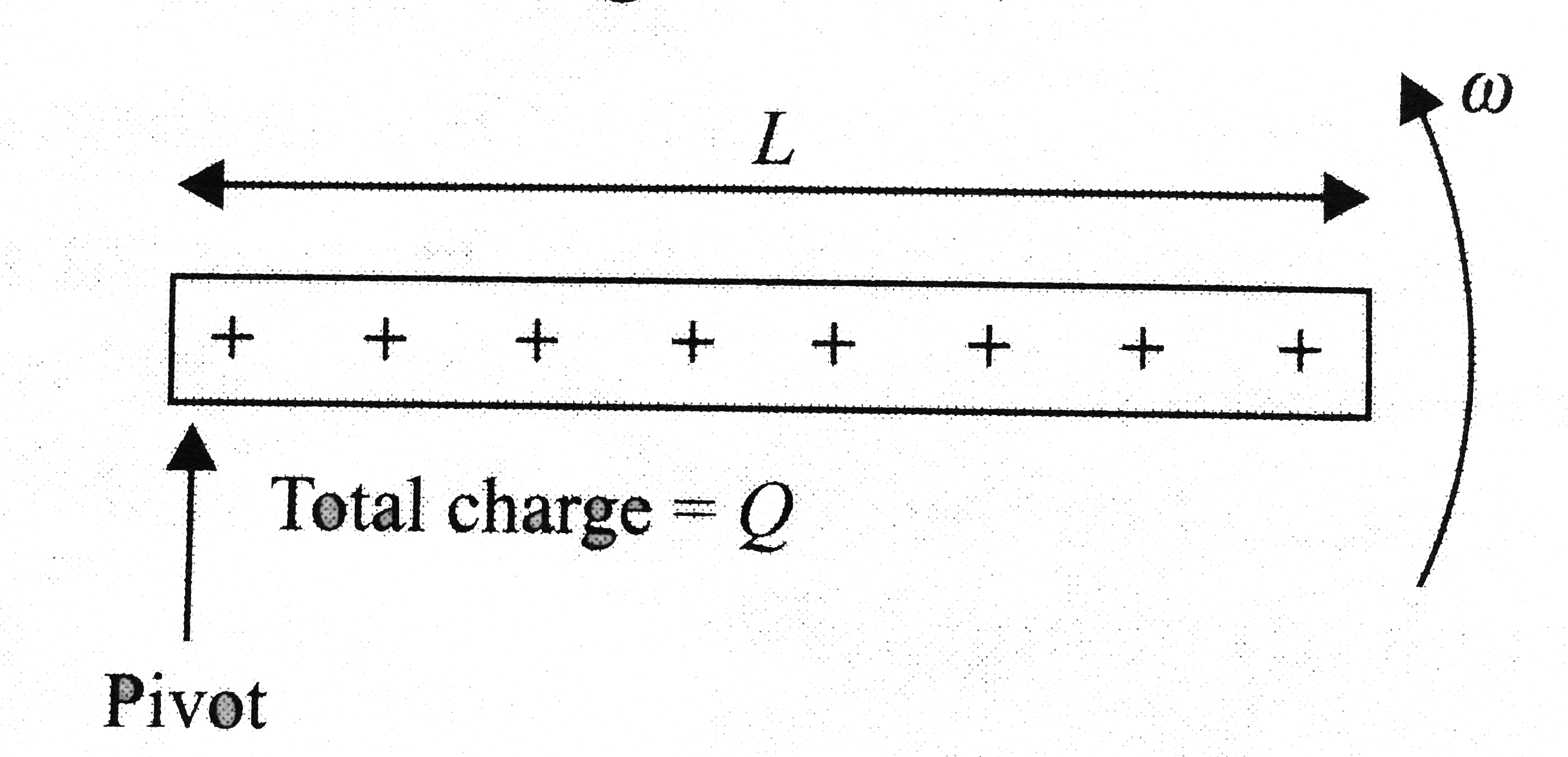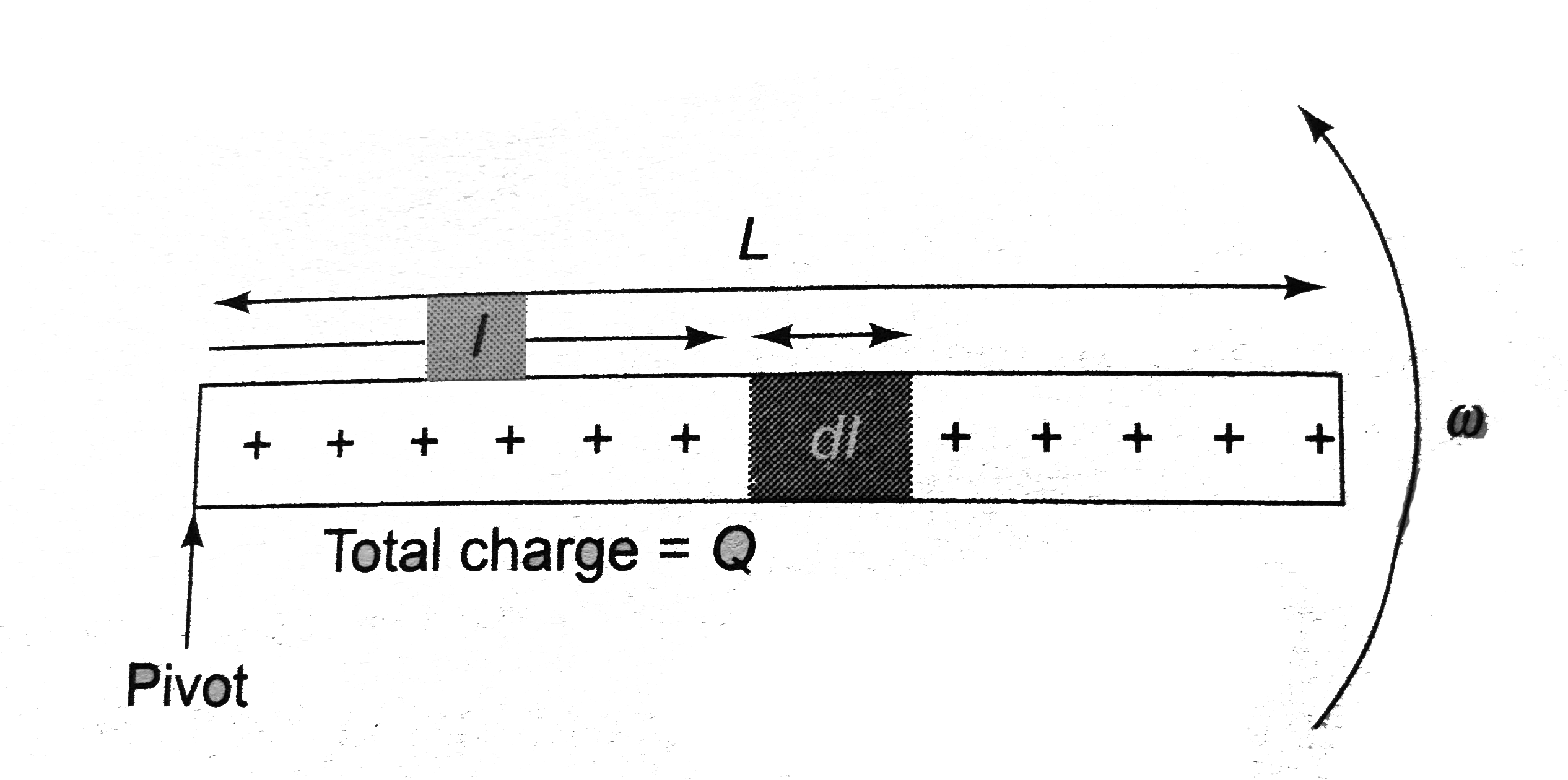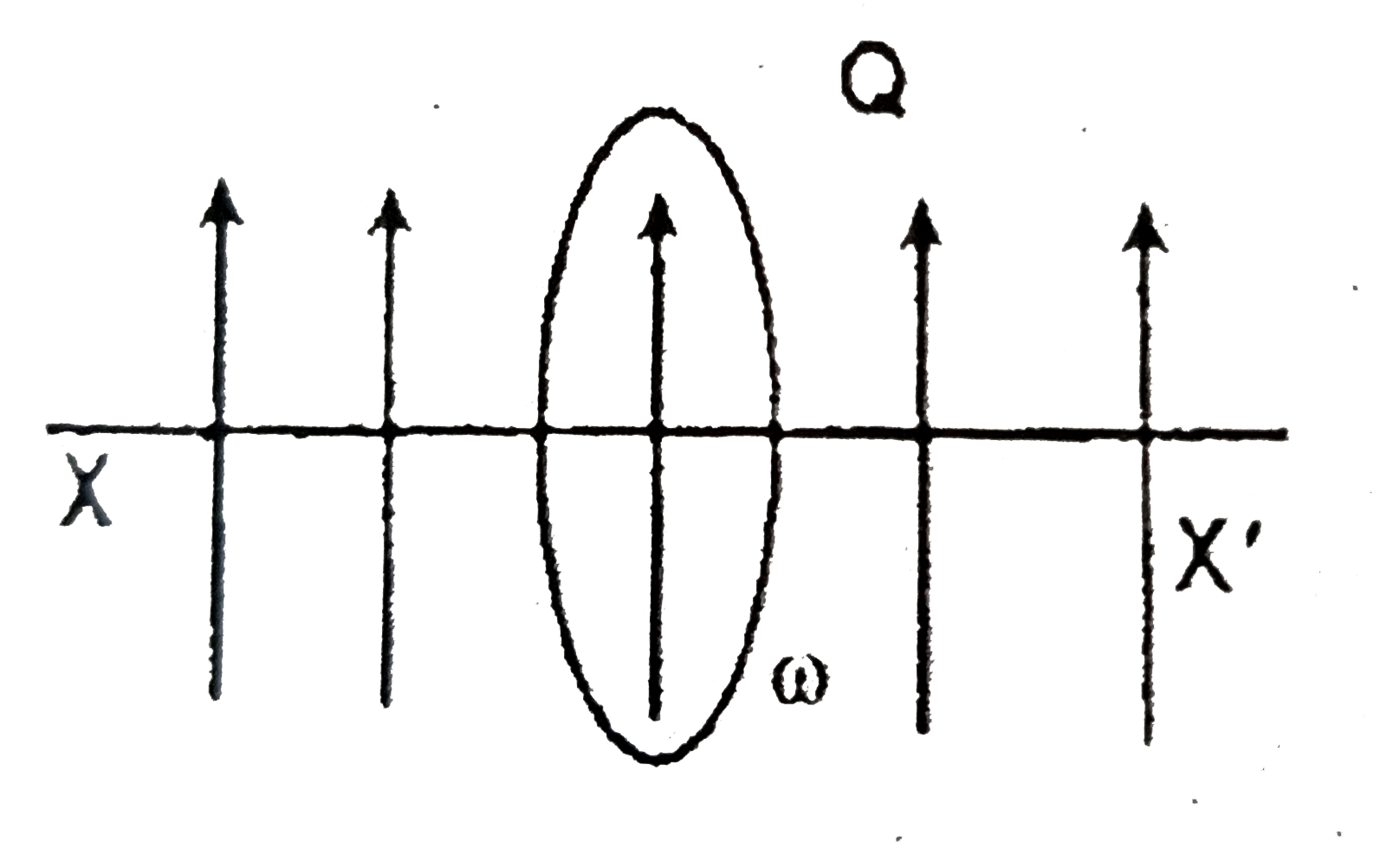A rod has a total charge Q uniformly distributed along its length L. If the rod rotates with angular velocity ω about its end, compute its magnetic moment.

We can visualize the rod to consist of differential element dQ, which constitute a series of concentric current loop. The charge per unit length of the rod is λ,
λ=QL
So the charge on a differential element of length dl,
dq=λdl
The current dl due to rotation of this charge is given by
dI=dq(2πomenga)=ω2πdq=ω2πλdl

The magnetic moment of this differential current loop,
dM=dI(πl2)=(ω2πλdl)πl2=ωλ2l2dl
To find total magnetic moment, we integrate
M=ωλ2∫+0Ll2dl=ωλL36
Subtituting for λ, we obtain M=QωL26.
Topper's Solved these Questions
- MAGNETIC FIELD AND MAGNETIC FORCESBOOK - CENGAGE PHYSICSCHAPTER - MAGNETIC FIELD AND MAGNETIC FORCESEXERCISE - Exercises Subjective
10 Videos
- MAGNETIC FIELD AND MAGNETIC FORCESBOOK - CENGAGE PHYSICSCHAPTER - MAGNETIC FIELD AND MAGNETIC FORCESEXERCISE - Exercises Single Correct
70 Videos
- MAGNETIC FIELD AND MAGNETIC FORCESBOOK - CENGAGE PHYSICSCHAPTER - MAGNETIC FIELD AND MAGNETIC FORCESEXERCISE - Exercise 1.2
13 Videos
- KINETIC THEORYBOOK - CENGAGE PHYSICSCHAPTER - KINETIC THEORYEXERCISE - Question Bank
31 Videos
- Magnetism and MatterBOOK - CENGAGE PHYSICSCHAPTER - Magnetism and MatterEXERCISE - Question Bank
50 Videos
Similar Questions
A rod of length l and total charge 'q' which is uniformly distributed is rotating with angular velocity ω about an axis passing through the centre of rod and perpendicular to rod. Find the magnitude of magnetic dipole moment (in Amp. m2) of rod. If q=4C,ω=3rad/s and l=2m
View SolutionA ring of dielectric material, with a total charge +q distributed uniformly over its surface, rotates with angular speed ω. Find the magnetic moment of the ring .Compare its magnetic moment with its angular momentum , assuming that its mass is m.
View Solution
Knowledge Check
A uniform rod of mass M and length L carrying a charge q uniformly distributed over its length is rotated with constant velocity w about its mid point perpendicular to the rod. Its magnetic moment is
AqωL2/6BqωL2/12CqωL2/24DqωL2/48Consider the situation shown in the figure of the previous problem. Suppose the wire connecting O and C has zero resistance but the circular loop has a resistance R uniformly distributed along its length. The rod OA is made to rotate with a uniform angular speed (ω) as shown in the figure. Find the current in the rod when −AOC=90∘
A53Ba2ωRB83Ba2ωRCBa2ω3RDNone of theseA disc of mass m has a charge Q distributed on its surface. It is rotating about an XX' with a angular velocity ω. The force acting on the disc is
 AzeroBωRB/πC2QωBRDnone of these
AzeroBωRB/πC2QωBRDnone of these
An insulating rod of length l and charge carries q distributed uniformly on it. The rod is pivoted at its one end and it rotated with angular velocity omega about a fix axis perpendicular to the rod and passing through the pivot. The magnetic moment of rhe system is
View SolutionA ring of mass m and radius R is given a charge q. It is then rotated about its axis with angular velocity ω.Find
(iii)Magnetic moment of ring.
View SolutionA this disc of dielectric material, with a total charge +q distributed uniformly over its surface, rotates with angular speed ω about an axis perpendicular to the disc and passing through its centre .Find the magnetic moment with its angular momentum , assuming that its mass is m.
[Hint : Consider a ring of radius x and thickness dx. Calculate charge on it and then the current consituited by its rotation .Find its magnetic moment and integrate for the whole disc.]
View SolutionA thin disc of radius R has charge Q distributed uniformly on its surface. The disc is rotated about one of its diametric axis with angular velocity ω. The magnetic moment of the arrangement is
View SolutionA hollow sphere has charge 'q' which is uniformly distributed over its surface and rotating about its axis .Find the magnetic moment of the sphere
View Solution
